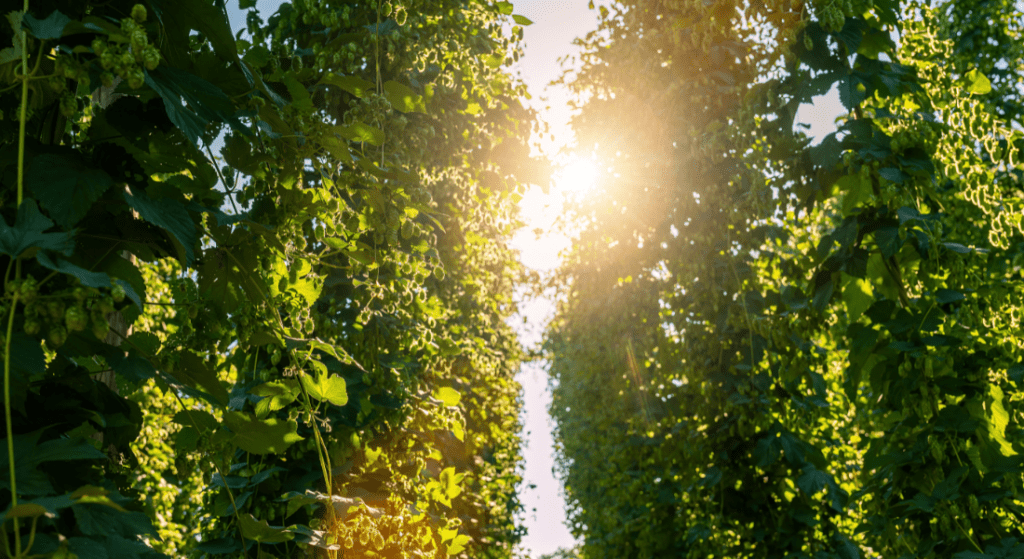At Hop Head Farms, we have team of growers dedicated to producing quality hops via sustainable growing practices. We know sustainability is a prominent buzzword displayed, albeit loosely, by many food producers, but how is it defined? On our farms, we define sustainable practices by the fundamentals: economical, environmental, and socially equitable.

These three pillars are key to operations, but we strive to give emphasis to the environment. Many members of our team avidly fish and hunt our area waters and land. Our landscape gives us so much and it is imperative as farmers that we reciprocate as good stewards. Agricultural producers are big contributors to processes that threaten our ecosystems such as fertilizer leaching into the watershed or greenhouse gas emissions. We believe the greatest way to can mitigate our environmental impact is via growing practices that promote organic matter accumulation in our soil. Every ton of soil organic carbon is equivalent to 3.67 tons of atmospheric carbon dioxide. Soil organic matter helps adsorb fertilizers to prevent leaching into the watershed. Soils high in organic matter require less fertilizer inputs than soils low in organic matter. It is also food for microbes which help make fertilizer more available to the plant. A robust soil biology often results in robust plants. Examples of our growing practices that promote soil organic matter accumulation are frequent applications of compost and manure, reduced tillage, and cover cropping our alleys.
Regarding economics, we strive to keep it simple in our decision-making practices by always asking this straightforward question: is this decision more cost effective than any of the alternatives? Of course, it is not always crystal clear, but we found that actions taken focusing on the environmental pillar help clarify economic implications of a decision. For example, we have been able to reduce our nitrogen inputs by 1/3 on fields where soil organic matter has increased. That’s money saved. Soils high in organic matter with a rich biology result in healthier plants that are more resistant to stress. Consequently, pest and disease pressure are reduced, and less pesticide inputs are warranted. These principles build off each other to provide a growing climate to produce a high quality crop while protecting the land.

Stay in the loop with the latest hop news, upcoming events, and more!